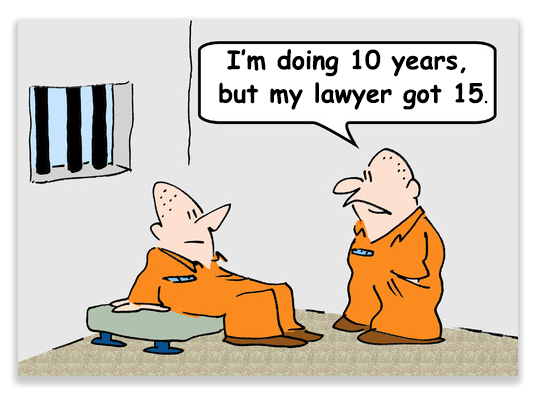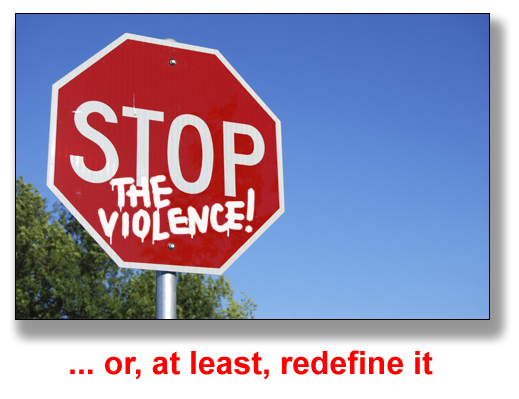We post news and comment on federal criminal justice issues, focused primarily on trial and post-conviction matters, legislative initiatives, and sentencing issues. Today, we’re posting some short features from Monday’s inmate newsletter.
JUDGE POSNER OPENS LEGAL CENTER FOR PRO SE ASSISTANCE
Retired Judge Richard Posner of the 7th Circuit Court of Appeals last week announced the opening of the Posner Center of Justice for Pro Se’s, a continuation of his prior pro bono project. The Center’s vision is to assist pro se litigants – which constitute up to 50% of federal courts’ workload – behind the scenes to help them to successfully represent themselves.
 “Representing oneself in court is often the best way for a pro se to obtain justice,” Posner said in news release. “Unlike judges, juries tend to be impressed by a lone litigant standing up against a gaggle of lawyers.”
“Representing oneself in court is often the best way for a pro se to obtain justice,” Posner said in news release. “Unlike judges, juries tend to be impressed by a lone litigant standing up against a gaggle of lawyers.”
The center already has about 80 lawyers and non-lawyer advisors spread across 27 states, and expects eventually to have representatives in all 50 states as well as U.S. territories. All staff are currently unpaid—though the center says that could change.
“There are reliably believed to be at least a million pro se’s in the United States,” Posner said. “Many of those pro se’s, however, don’t realize they can obtain legal assistance. Therefore, I will continue to work to get the message out that our organization exists, and then try to assist as many deserving pro se’s as possible.”
Posner resigned from the 7th Circuit last fall after more than three decades on the bench. He said he left in part because of disagreements with colleagues over how the court handles pro se litigants, many of whom are prison inmates.
The Posner initiative does not yet have an Internet presence, and no contact information is available. But we’re looking…
Litigation Daily, Introducing The Posner Center of Justice for Pro Se’s (Mar. 28, 2018)
HEY, KIDS, DON’T TRY THIS RDAP HACK AT HOME
Who wouldn’t like a year off his federal sentence? The Bureau of Prisons operates an intensive Residential Drug Abuse Program, as directed by Congress, which consists of nine months of classes and treatment while incarcerated and further treatment during the prisoner’s transition through halfway house. Inmates lucky enough to get into the program and to complete it may receive up to one year off their sentences.
 When RDAP started, every defense lawyer quickly learned that he or she should ask the judge to recommend RDAP for a defendant being sentenced. The judges were compliant, because, after all, the recommendation didn’t cost them anything. But the BOP wised up, and began requiring substantial evidence that the inmate had a substance abuse issue in the year prior to his or her arrest.
When RDAP started, every defense lawyer quickly learned that he or she should ask the judge to recommend RDAP for a defendant being sentenced. The judges were compliant, because, after all, the recommendation didn’t cost them anything. But the BOP wised up, and began requiring substantial evidence that the inmate had a substance abuse issue in the year prior to his or her arrest.
So getting into RDAP (and getting that year-off carrot the BOP dangles to encourage successful completion) can be tough. But, federal prosecutors say, not if you’re lawyer is hard-charging Brooklyn attorney Scott Brettschneider.
 As alleged in a criminal case filed last week in the Eastern District of New York, Scott – known to denizens of the EDNY courts as “Mighty Whitey” – drafted a letter to the BOP for one of his clients, falsely recounting the client’s history of substance and alcohol dependence. The letter was signed by Mighty’s non-lawyer assistant, who said he was the inmate’s treatment provider. Mighty Whitey sent the letter to the BOP to win his client’s admission into RDAP.
As alleged in a criminal case filed last week in the Eastern District of New York, Scott – known to denizens of the EDNY courts as “Mighty Whitey” – drafted a letter to the BOP for one of his clients, falsely recounting the client’s history of substance and alcohol dependence. The letter was signed by Mighty’s non-lawyer assistant, who said he was the inmate’s treatment provider. Mighty Whitey sent the letter to the BOP to win his client’s admission into RDAP.
The Feds tumbled to the scheme somehow, and wiretapped Mighty Whitey talking to the inmate on a smuggled cell phone in prison, discussing the letter. One of Mighty’s sidekicks allegedly said on a call that he doubted the BOP would be “scrutinizing it that much.”
He appears to have been mistaken. Quite mistaken.
U.S. Attorney E.D.N.Y. News Release, Queens Criminal Defense Attorney and Three Other Individuals Indicted for Conspiracy and Making False Statements (Mar. 26, 2018)

WITHER DIMAYA?
The most common question we get from readers is ‘how do I get up out of prison?’ The second most common question we hear is ‘when is the Supreme Court going to decide Lynch v. Dimaya (now known as Sessions v. Dimaya)?’
 Dimaya, which relates in part to whether the Johnson v. United States declaration that part of the “crime of violence” definition was unconstitutional, was argued on the first day of the current Supreme Court term (last October 2nd). This was after the case was held over from the prior term for reargument (suggesting the Court was split 4-4 after the prior argument, which occurred before Justice Gorsuch was confirmed). Of the nine cases argued in October 2017, four of them (including Dimaya) remain undecided. Only Dimaya has any criminal law impact.
Dimaya, which relates in part to whether the Johnson v. United States declaration that part of the “crime of violence” definition was unconstitutional, was argued on the first day of the current Supreme Court term (last October 2nd). This was after the case was held over from the prior term for reargument (suggesting the Court was split 4-4 after the prior argument, which occurred before Justice Gorsuch was confirmed). Of the nine cases argued in October 2017, four of them (including Dimaya) remain undecided. Only Dimaya has any criminal law impact.
Last week, Supreme Court observer Amy Howe predicted that either Justice Kagan or Gorsuch would be writing Dimaya. She did not guess as to when that opinion would issue.
SCOTUSBlog, Reading the Tea Leaves (Mar. 26, 2018)

– Thomas L. Root
